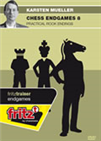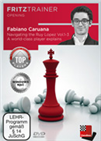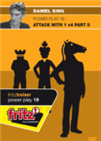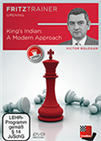A highly critical champion
Talking to the commentators once the tournament was over, FIDE President Arkady Dvorkovich mentioned that it is nice to see that the current world blitz champions, Magnus Carlsen and Kateryna Lagno, have been showing consistent results in this format, now winning the online Steinitz Memorial. One more proof that, when a large enough number of rounds are played, the best still come out on top more often than not despite the higher volatility caused by the speed of play.
Carlsen won the event on Norway's Constitution Day, celebrating the signing of the official document that declared Norway to be an independent kingdom in 1814. The tournament was broadcast on Norwegian television, making it a nice achievement for the national hero amid the crisis, with few to none sport activities currently being organized.
However, this nice coincidence and the fact that he won the event with one round to spare were not enough to satisfy the extremely high standards the world champion lives by. Carlsen was ruthlessly critical of his play, declaring:
I'm more happy than I would have been if I hadn't won the tournament, but that was terrible from start to finish.
Meanwhile, the winner of the women's tournament was visibly more pleased with her victory. Lagno noted that playing online while taking care of her kids is much more tiring than exclusively focusing on an over-the-board tournament. Not a player known for being active online, she confessed that playing in front of a computer is not much to her liking:
Honestly, I don't enjoy to play online. I'm sorry to say it because it's better than nothing, this is for sure. This tournament keeps me, you know — I have to be in shape, I have to prepare, I have to check my analyses, well, to do my work. [...] But I've played 26 years in front of the opponent, so it's a lot, and I'm used to this. So I enjoy to see my opponent, to share the ideas, to speak after the game. You know, old habits.
This was Carlsen's second consecutive victory in an online tournament, after beating Hikaru Nakamura in the final of the Magnus Carlsen Invitational. The strongest player in the world will try to continue his run of excellent results on Tuesday, when the Lindores Abbey Rapid Challenge is scheduled to kick off.

Carlsen and Lagno holding their trophies during the closing ceremony of the 2019 World Rapid and Blitz Championships | Photo: Amruta Mokal
Women's: Down to the wire
Experience prevailed in the women's section, as 30-year-old Lagno ended up winning the event ahead of Lei (23) and Zhansaya Abdumalik (20). It was not easy, though. Abdumalik came from winning four in a row on day two and started the final day of action with three back-to-back victories. After fifteen rounds, the Kazakhstani was leading the tournament a half point ahead of Lagno. However, she was halted by Lei in round sixteen, who held her to a draw with black. Abdumalik missed a chance to get what would have been a crucial victory:
 Rook endings are amongst the most frequently encountered endgames there are, and so your training effort will be quickly repaid in the form of half and full points. Knowing even a few rules of thumb and key methods makes life a great deal easier and provides a guiding light even in complex positions. This DVD focuses on the important themes which are to be found in common rook endings.
Rook endings are amongst the most frequently encountered endgames there are, and so your training effort will be quickly repaid in the form of half and full points. Knowing even a few rules of thumb and key methods makes life a great deal easier and provides a guiding light even in complex positions. This DVD focuses on the important themes which are to be found in common rook endings.
Instead of 52.Qc1, White could have gone for the break on the kingside with 52.f5, when getting the initiative in a position with bishops of opposite colours and queens still on the board would have given her great chances to win. After the text, the position was equalized, and the point was split not long after.
Lagno caught up with the 20-year-old thanks to a win over Antoaneta Stefanova, while Lei and Alexandra Kosteniuk were now a point behind the leaders. With two rounds to go and after having scored 7½ points in her last eight games, Abdumalik suffered a painful defeat against Tan Zhongyi:
There was no way for Tan to save both her pieces on the queenside, but she was also attacking Black's key backward pawn on e6. Abdumalik hurried with 20...bxa4 instead of opting for 20...Bf8, keeping things under control and forcing White to give up an exchange with 21.Nb2 b4 22.Rxc8. The game continued 21.Bxd6 Bb7 22.Bxb8 Bxc6 23.dxc6 and Black could not capture the bishop with 23...Nxb8 due to 24.c7. Tan was in the driver's seat and showed good nerves until getting a 74-move win.
In the meantime, Lagno drew Kosteniuk and Lei beat Deysi Cori, so the Russian went into last round as the sole leader, with Lei and Abdumalik a half point back. Lei scored her fourth victory of the day, against Elisabeth Paehtz, and Lagno drew Abdumalik with black in a tense encounter, which meant an Armageddon game between Lei and Lagno would decide the winner of the event.
Lei bravely chose to play white in the tiebreaker, so she needed to beat the current world blitz champion to get tournament victory. However, the young Chinese grandmaster did not go for the most critical continuation on move 15:
 The Ruy Lopez is one of the oldest openings which continues to enjoy high popularity from club level to the absolute world top. In this video series, American super GM Fabiano Caruana, talking to IM Oliver Reeh, presents a complete repertoire for White.
The Ruy Lopez is one of the oldest openings which continues to enjoy high popularity from club level to the absolute world top. In this video series, American super GM Fabiano Caruana, talking to IM Oliver Reeh, presents a complete repertoire for White.
15.Bxh6 is begging to be played, although things do get messy after 15...Bxf2 16.Kxf2 Qf6. In a must-win situation, Lei opted for 14.Be3, and Lagno went on to get the upper hand by move 30. A completely shut down position ensued eventually, with no breaking points for White. Lei had kept her time advantage and moved around quickly, looking to put her opponent under time pressure. But Lagno kept her cool and, when her opponent finally decided to break through forcefully, was left with a completely winning position.
Lei resigned on move 152, which meant Lagno had won the first FIDE Women's Online Steinitz Memorial.
Final standings - Women's section
All games - Women's section
Open: Dubov collapses
The day started with five wins for White in round thirteen, including victories for Dubov, Carlsen and Peter Svidler, who defeated Shakhriyar Mamedyarov in a key match-up — Svidler, in fact, finished the event in third place. Carlsen caught up with Dubov in the very next round, as he drew David Anton while the then leader lost against Alexander Grischuk. Grischuk got the win despite having missed a chance to sacrifice his queen in style:
 Finally clear attacking plans against the Scandinavian, Pirc, Alekhine & Co! Let Daniel King show you how to pressurize these openings right from the start,
forcing your opponents into mistakes.
Finally clear attacking plans against the Scandinavian, Pirc, Alekhine & Co! Let Daniel King show you how to pressurize these openings right from the start,
forcing your opponents into mistakes.
White had 32.Qxh4+, as 32...Nxh4 33.Rh5+ is devastating. Grischuk kept the advantage with 32.Qf3 and eventually scored the full point.
That was the first of three consecutive losses for Dubov, who nevertheless remained in second place throughout, as no one had a stellar performance on day three. The out-of-form Russian, for instance, found himself lost as early as move 14 against Bu Xiangzhi in round fifteen:
Dubov's bold 14.e4 fails to 14...fxe4 15.Bxe4 and the crucial 15...Nxd4, as White has nothing better than 16.Nbxd4 Qxe4+ 17.Qxe4 Bxe4 18.Nxb5 — thus, Black got the initiative and the bishop pair by force. Bu won the game after 45 moves.
Meanwhile, Carlsen ended the day undefeated, collecting three wins and three draws. Although he was uncharacteristically down on the clock more than once, the world champion managed to take advantage of his opponents' mistakes. In round fifteen, Grischuk put forth what commentator Peter Leko called "the worst ever King's Indian":
 Bologan: "If you study this DVD carefully and solve the interactive exercises you will also enrich your chess vocabulary, your King's Indian vocabulary, build up confidence in the King's Indian and your chess and win more games."
Bologan: "If you study this DVD carefully and solve the interactive exercises you will also enrich your chess vocabulary, your King's Indian vocabulary, build up confidence in the King's Indian and your chess and win more games."
Black's pieces have nowhere to go and are terribly uncoordinated, so it makes sense that breaking through with 24.Nxe5 works for White. There followed 24...f3 25.Nxf7 fxe2 26.Nxd8 Rxd8, and Carlsen went on to convert his massive advantage.
After Dubov's three consecutive losses, all Carlsen needed to do was splitting the point with the Russian in their direct encounter to secure tournament victory. Much like in the women's section, 12 out of 18 was the winning score.
Final standings - Open section
All games - Open section
Links
























